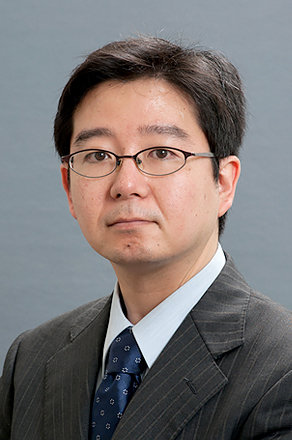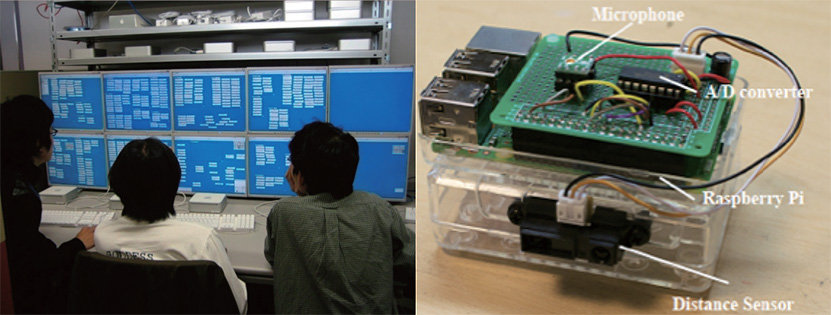
Technology for Collaboration & Creative Society
~ Creativity, Community, and Culture ~
Laboratory on Collaboration Technology & Creativity
Professor:YUIZONO Takaya
E-mail:
[Research areas]
Collaboration Technology, Computer Supported Cooperative Work(CSCW), Creativity, Knowledge Science
[Keywords]
Creativity Support, Community Support, Intercultural Collaboration, Interaction Design, Content Co-Creation, Social Media
Skills and background we are looking for in prospective students
Students from diverse backgrounds, such as science, engineering, and the humanities, who can undertake transdisciplinary research, are self-learners, can nurture their skills for research, and can build upon the work of their respected predecessors.
What you can expect to learn in this laboratory
We are social animals. We overcome complex tasks by working in groups or organizations. You will learn collaboration technologies, such as electronic meeting methods, and human or social computing. If your research is focused on new information systems, you will learn skills on system design and network programming. If your research is focused on the methodology of meeting, you will learn meeting techniques and observation and experimental methods to understand human behaviors. Through research you will become an active life-long learner and contribute to progress on understanding socio-technology.
【Job category of graduates】 IT Engineer, Service Engineer, System Engineer, Socio-Tech Expert
Research outline
Two practices of digital technology are intelligence amplification (IA), which makes humans wiser or more creative, and artificial intelligence (AI), which realizes automation with computing machines. We use the IA approach through design studies on information technology systems for a group’s creative problem-solving process over the Internet. To support humans, we utilize knowledge of humans from social sciences, psychology, management, and creativity research. In addition, you can use both IA and AI approaches toward human–machine symbiosis in the digital age.
Our research methodology is to design/implement information systems, and then evaluate their effects on individual or group behaviors. Another research methodology is to design a collaborative work and evaluate it using existing IT systems.
We have three concepts of our laboratory’s research and are open to new concepts.
- Creativity: a key factor of innovation based on new ideas using different thinking styles, such as deduction (logical thinking), induction (analogical thinking), and ideation (creative thinking). Groupware (software for a group) has been developed to support different creative thinking styles. The groupware supports creativity techniques, such as brainstorming and the KJ method (affinity diagram). Motivation is a key factor of creativity. Thus, gamification (game elements) has been applied to distributed brainstorming for a long-term ideation.
- Community: it can be empowered by creating a real/virtual field for people interaction; not only formal meetings but also informal communication is necessary for flourishing communities. Multi-sensory communication with the Internet of things (IoT) are used to support copresence and awareness and enable trustworthy distant collaboration.
- Cultural understanding: natural language processing with machine learning has been applied to the analysis of chat conversations among Thai, Japanese, and Chinese people. It revealed the differences in their communication styles. This knowledge will be beneficial for intercultural collaboration.

Figure 1: Large-screen interface and IoT device.
Key publications
- Kamada, K., Watarai, R., Wang, T. Y., Takashima, K., Sumi, Y., & Yuizono, T. (2023). Explorative Study of Perceived Social Loafing in VR Group Discussion: A Comparison Between the Poster Presentation Environment and the Typical Conference Environment. Proceedings of INTERACT2023 (pp. 115-134).
- Yu, X., Wang, T. Y., & Yuizono, T. (2023). Creativity Development through Questioning Activity in Second Language Education. In Frontiers in Education (Vol. 8, p. 1178655). Frontiers.
- Li, R., Yuizono, T., & Li, X. (2022). Affective computing of multi-type urban public spaces to analyze emotional quality using ensemble learning-based classification of multi-sensor data. Plos one, 17(6), e0269176.
Equipment
Appreciate a maker to implement your idea by yourself.
(Hardware 1) Large screen interface for collaboration.
(Hardware 2) IoT devices (Raspberry Pi), 3D printer
(Software 1) Electronic meeting system (KJ method support)
(Software 2) Natural language processing resources (Language Grid, ALAGIN Forum)
Teaching policy
We aim to create mature self-learners who can become reflective practitioners, who can find a new problem and solve it with a meta-idea. Our tutors discuss with students their research themes based on these criteria: “passionate”, “enjoyable”, and “important” in socio-technology. The tutors hold weekly seminars, in which students are required to report their research progress. Research progress is based on own activities, such as thinking, making, reading, and writing, etc. The tutor expects students to get creative confidence and to conquer new heights through goal-oriented thinking for executing their ideas.
[Website] URL : https://www.jaist.ac.jp/ks/labs/yuizono/